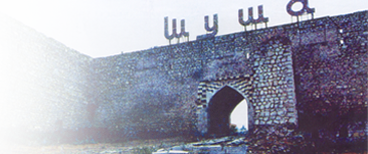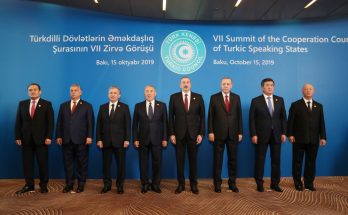
The Secretary general of the Organization of Islamic Cooperation (OIC) Iyad Amin Madani has presented a report on Armenian aggression against Azerbaijan.
During the 42nd session of the Council of Foreign Ministers of OIC member states in Kuwait, Madani presented reports on the political, cultural, social and other issues.
In this meeting, Azerbaijan is represented by the country’s Foreign Minister Elmar Mammadyarov.
The report on the political issues includes an article “Armenian aggression against Azerbaijan”.
The report said that following the last meeting of the Council of Foreign Ministers, no political progress was achieved on the issue of occupation of Azerbaijani lands by Armenia.
The report said that as a result of Armenian aggression, over a million Azerbaijanis became refugees and IDPs. The document also demands unconditional withdrawal of Armenian troops from Azerbaijan’s occupied territories.
Moreover, in the mentioned report, Madani urges the member states of the organization to put forward joint and individual proposals on liberation of Azerbaijan’s occupied lands in accordance with the resolutions adopted by international organizations.
One of the articles of the report on cultural, social and family affairs is named “Destruction of the monuments of Islamic history and culture on Azerbaijani territories occupied as a result of Armenian aggression”.
In this article, OIC secretary general urges the relevant specialized organizations of OIC to work out a program on reconstruction of the mosques, schools, libraries and museums in the occupied territories of Azerbaijan after their liberation.
The report also said that protection of the samples of Islamic culture of Azerbaijan has been included in the program of OIC specialized organizations, Islamic Development Bank and ISESCO.
The conflict between the two South Caucasus countries began in 1988 when Armenia made territorial claims against Azerbaijan. As a result of the ensuing war, in 1992 Armenian armed forces occupied 20 percent of Azerbaijan, including the Nagorno-Karabakh region and seven surrounding districts.
/Trend/




